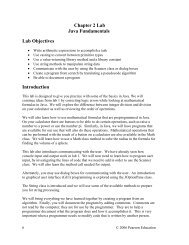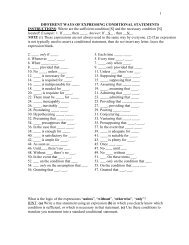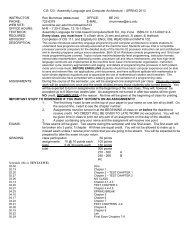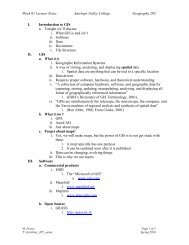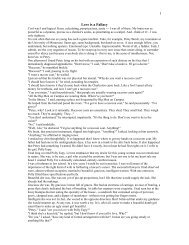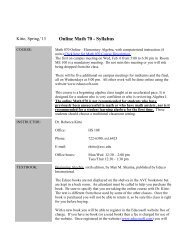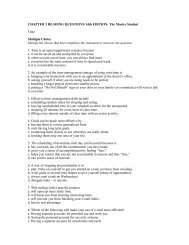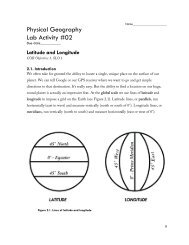Kantian ethics
Kantian ethics
Kantian ethics
You also want an ePaper? Increase the reach of your titles
YUMPU automatically turns print PDFs into web optimized ePapers that Google loves.
2Maxim: all deliberate actions can be expressed as a general rule. I can make lots of money bycheating in a card game; I cheat. Personal rule/maxim: Whenever I can make lots of money bycheating in a card game, I cheat. General/Universal maxim: For everyone, whenever one can makelots of money by cheating in a card game, one cheats. According to Kant, such universal cheatingwould annul the game, and so I would not be in a situation to make lots of money in the card game.Because of this “inconsistency” [self-defeating action], I should not cheat in the game.Which kind of moral evaluation is most effective in convincing us not to cheat?(a) This <strong>Kantian</strong> inconsistency.(b) The cheating breaks a tacit agreement (promise) not to cheat.(c) The negative consequences of getting caught: lose money, lose reputation, others mistrust me.Problems: 1. Is there really an inconsistency?2. We can formulate our maxims to avoid the “inconsistency”: For everyone, whenever one canmake lots of money by cheating in a card game AND NOT get caught, one cheats. Since noinconsistency, the cheating is permissible. So, the CI is not sufficient to identify what is morallypermissible or what we ought to do.3. Is the CI necessary? Can a moral act be permissible when it is forbidden by the CI?Situations: It’s cold; I wear a sweater. Personal rule/maxim: Whenever it’s cold, I wear a sweater.Genera/Universall maxim: For everyone, whenever it’s cold, one wears a sweater. Can I beconsistent (rational) in willing (wishing, hoping…) universal maxim? There might not be enoughsweaters for everyone: I might not have one. Is this an inconsistent result?3.Even if the CI worked, it would only tell us what is permissible.CI: Never treat a person simply/merely as a means. Treat all persons as ends.Fondamental qualities of personhood: autonomy: reasoning + self-rule. To treat someone merely as ameans is not to respect their autonomy. What are the nec. & suff. conditions for respecting one’sautonomy: (a) Give all the relevant information needed to make a decision. Problem: Criteria ofrelevance? The person’s self-interest?(b) No coercion. Problem: There are degrees of influence.(c) Keeping agreements, promises.(d) Giving what one deserves (justice); not exploit.



